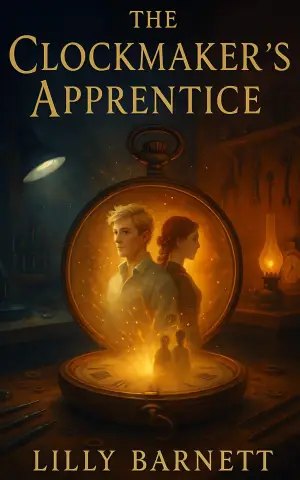Review of Blackout: How Black America Can Make Its Second Escape by Candace Owens
When I first picked up Blackout: How Black America Can Make Its Second Escape by Candace Owens, I was both curious and cautious. The title itself evokes a sense of urgency and resilience, suggesting a real need for a reckoning and a renewed path forward for Black America. But as I delved deeper, I struggled with the message and tone, feeling torn between the good intentions and the delivery that often left me feeling uneasy.
Owens sets out to explore a provocative argument: why the Black community should reconsider its relationship with the Democratic Party, particularly under the current political climate. However, I found that her approach too frequently leans into divisive rhetoric that feels almost like an escape hatch rather than a constructive dialogue. For a book that aims to unify, it can read more like a continuation of the very political vitriol that has historically stunted meaningful conversations about race and politics.
The recurring theme of respect emerges as a cornerstone of her argument—a powerful idea that resonates with the lived experiences of many Black individuals. Yet, the framing often felt inadequate, creating a disconnect with its intended audience. Instead of bridging gaps, the book frequently reiterates far-right talking points, which can alienate rather than invite discussion. The idea that respect must be earned rather than taken is true, but it’s undermined when wrapped in incendiary commentary that leans on stereotypes rather than genuine understanding.
Owens’ writing style is sharp, but it often borders on confrontational. While some readers may appreciate her boldness, I found the pacing uneven and the tone dismissive of complex Black experiences. Key moments feel less like invitations to dialogue and more like unilateral declarations—far removed from the nuanced conversations about race that we desperately need today. It left me wondering, who is this book really for?
One notable line that struck me was when she mentioned, “True racial enlightenment comes when I am seen as a person, not a demographic.” It’s a poignant observation that encapsulates the struggle for individual recognition in a world that often prefers to categorize and stereotype. Still, the delivery felt jarring. While Owens clearly desires Black empowerment, the rhetoric can easily be interpreted as a dismissal of the systemic complexities that the Black community continues to face.
In conclusion, Blackout may find its audience among those who already align with Owens’ views. However, for readers seeking a more inclusive platform that recognizes the diverse tapestry of Black experience, it might fall short. I believe those who enjoy political commentary rooted in personal anecdotes mixed with stark conventional critiques will find something of value here. As for me, I left the book with a mix of disillusionment and a renewed desire for respectful, honest dialogue rather than sensationalism.
Ultimately, Blackout serves as a reminder of the critical importance of how we communicate—with compassion and understanding—not just about politics, but about each other. This reading journey has rekindled my hope for genuinely bridging our divides, with respect as the guiding principle. Maybe it’s time for all of us to reconsider how we engage with these tough conversations, ensuring they are rooted in empathy rather than division.
Discover more about Blackout: How Black America Can Make Its Second Escape … on GoodReads >>






